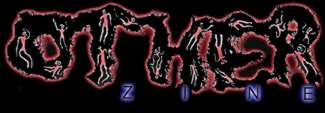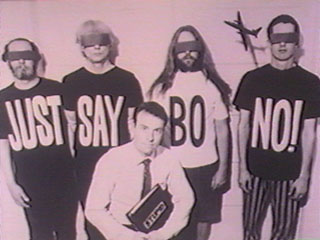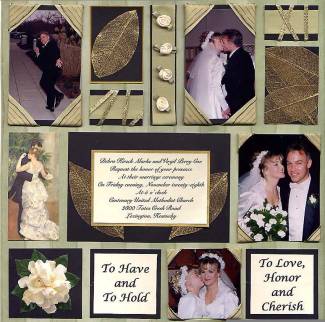
Remarks on Appropriation Art
by Rick Prelinger
(Click here for printer-friendly version)
from remarks at the Illegal Art panel, San Francisco Art Institute, July 7, 2003
Let me start with a very short manifesto. It's about why I like working with old images more than making new ones.
First why add to the population of orphaned artworks? Second what presumption that new work improves on old. Third honor our ancestors by recycling their wisdom. Fourth the ideology of originality is arrogant and wasteful. Fifth dregs are the sweetest drink of all. Sixth leftovers were spared for a purpose. Seventh actors don't get a fair shake the first time around, let's give them another. Eighth the pleasure of recognition warms us on cold nights and cools us in hot summers. Ninth we reach the future only by roundabout means. Tenth as we wish to address the future the past also desires to address us. Eleventh access to what's already happened is cheaper than access to what's currently happening. Twelfth archives are justified by use. Thirteenth make a quilt not an advertisement.
 Two weeks
ago in this same room I once again saw Craig Baldwin's 1995 film Sonic
Outlaws. It's a great film that raises all kinds of issues, just what
we're talking about tonight. But while watching it I was struck by the
thought that we're still talking about the same issues in many of the
same ways. I still find myself voicing my own verbalizations of some of
the excellent things that the people from Negativland and allied countries
(coalition partners) say in that film. We're all still talking about the
law, about copyright law.
Two weeks
ago in this same room I once again saw Craig Baldwin's 1995 film Sonic
Outlaws. It's a great film that raises all kinds of issues, just what
we're talking about tonight. But while watching it I was struck by the
thought that we're still talking about the same issues in many of the
same ways. I still find myself voicing my own verbalizations of some of
the excellent things that the people from Negativland and allied countries
(coalition partners) say in that film. We're all still talking about the
law, about copyright law.
Strictly speaking, copyright law divides us into good guys and bad guys. There are only a few not-so-well defined exceptions, like fair use. Content is considered property, so appropriators are seen as thieves. That's a tough label to shed, and it forces us into defensive positions. When the reuse of content is equated with stealing, or worse, terrorism; when the free exchange of content is criminalized; and when intimidating legal letters fly freely, it is easy to feel defensive, and worse, to behave reactively. When we are obliged to defend ourselves against assaults motivated by someone else's agenda, we are fighting for freedom of expression on unfriendly turf, and are unlikely to win what we deserve. It also constrains us into thinking in limited terms, terms that might not necessarily be our own.
And I started to think that this film expressed the promise of appropriation-based art, but also how it seems to be much more marginalized than it ought to be.
What "illegal artists" do isn't that different from any other kind of artists or thinkers. Appropriation is deeply embedded in every kind of creative practice. It's embedded in the way we talk, the way we think, in the way we establish reference points between ourselves and our cultures and between us and other persons. Now of course expressions of ideas are private property, so the unequal distribution of property renders much of this very natural process potentially illegal.
At the same time that artists' and musicians' listservs are full of legal talk, as we try to do our bit to oppose unconstitutional copyright term extensions and copyright laws that promote corporate welfare rather than the general welfare, at the same time people all over, artists or not, are sampling, recontextualizing, appropriating, making new work out of old.
 Ever
pick up one of those magazines targeted at scrappers? Creating Keepsakes,
Memory Makers, PaperKuts, Ivy Cottage Creations? Millions of Americans,
mostly women, are recontextualizing family archives and records of daily
life, combining them with pop culture artifacts to create dense, complicated,
and highly crafted, scrapbooks. They're taking their own stands against
ahistoricity, against the vagueness of the eternal suburban present, and
using collage to promote group memory and family unity. If these weren't
private creations, they'd often be running right up against copyright
law, but they may not know it, and really it isn't an issue, because the
thing here is that they are working just the way people think and see.
Appropriation is an organic process. Craig and others often talk about
collage as a kind of folk art, and they're right on the money. And I think
we might be surprised if we looked at certain 19th century quilts as closely
as we look at a consciously avant-garde film or a painting. There's a
place to find expressions of resistance through appropriation.
Ever
pick up one of those magazines targeted at scrappers? Creating Keepsakes,
Memory Makers, PaperKuts, Ivy Cottage Creations? Millions of Americans,
mostly women, are recontextualizing family archives and records of daily
life, combining them with pop culture artifacts to create dense, complicated,
and highly crafted, scrapbooks. They're taking their own stands against
ahistoricity, against the vagueness of the eternal suburban present, and
using collage to promote group memory and family unity. If these weren't
private creations, they'd often be running right up against copyright
law, but they may not know it, and really it isn't an issue, because the
thing here is that they are working just the way people think and see.
Appropriation is an organic process. Craig and others often talk about
collage as a kind of folk art, and they're right on the money. And I think
we might be surprised if we looked at certain 19th century quilts as closely
as we look at a consciously avant-garde film or a painting. There's a
place to find expressions of resistance through appropriation.
So I think we need to put a new spin on appropriation art. It's too deeply embedded in the way all of us think and work to be marginalized as radical. What's radical is when someone tries to threaten another person or send them a bill for quoting them in a transformative way. Appropriation might be radical in the art world, but it doesn't seem quite as unusual in the real world. Of course, whether you're a culture jammer or an uncritical collagist depends on which detour you take. But the process remains much the same.
Now I'm NOT suggesting that we let laws go from bad to worse without doing anything about them. We need to continue being active to reform bad laws. But I am saying that if we want the public to be more concerned about how copyright and contract laws are constraining free expression, we need to become a little less obsessed with the details of copyright and take a more organic view of what we do as appropriation artists. We aren't engineers, we're not necessarily more futuristic nor more advanced than others, we are in fact just artists, and we're here to bare the workings of the tools and ideas we use as we use them.
I've said elsewhere that we aren't asking enough of utopia. Yes, copyright law needs to be fixed. But while working on the fixes, let's also let our minds wander further and try to articulate more fundamentally radical visions about how information, ideas, art and culture might be produced and exchanged.
Thinking about freer content suggests radically different ways of thinking about the distribution of knowledge and culture. Freer content might be the utopian wedge that could lead to freer ways of circulating other goods and services. We might imagine equalizing tactics that could tip the balance towards a different kind of IP landscape - a shared, profit-free body of knowledge, culture, and entertainment whose very existence might challenge long-lasting concepts of property ownership and control and stimulate popular alternatives to winner-take-all thinking. Culture can illuminate and demystify property relations, and changing the way that culture is distributed can lead the way to changing how property is distributed.
I'd like to end by suggesting that we look at copyright in a different way. Rather than taking copyright as it's currently written into law, rather than taking that as a given, let's think about what kinds of copyright protection might really serve the needs of creators. It's pretty clear by now that existing law favors corporations over individuals. What might a different kind of copyright law look like? It's time for us to sit down and work this out, so that we have solutions of our own, something more than simply reactive responses to existing law.
We have a first step with Creative Commons, which allows anyone to put different kinds of permissive licenses on their work. This is a great start. But I think we really need something like the constitutional conventions, a broad discussion that might lead to a new consensus.